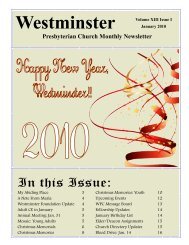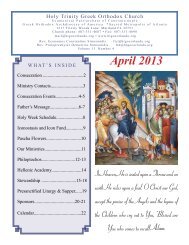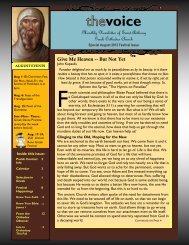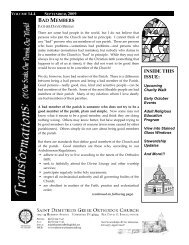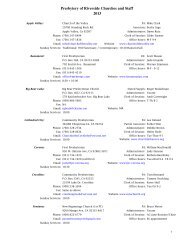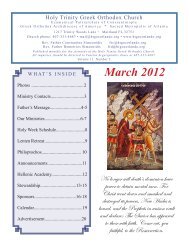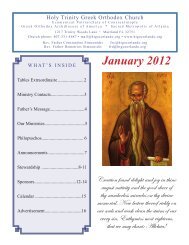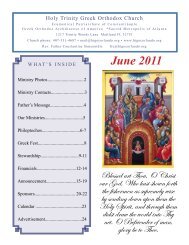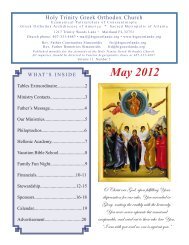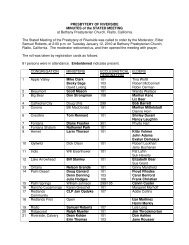OSIS? 2.0.1 User's Manual - Web services are running on AMBIB
OSIS? 2.0.1 User's Manual - Web services are running on AMBIB
OSIS? 2.0.1 User's Manual - Web services are running on AMBIB
You also want an ePaper? Increase the reach of your titles
YUMPU automatically turns print PDFs into web optimized ePapers that Google loves.
For as I walked around and looked c<str<strong>on</strong>g>are</str<strong>on</strong>g>fully<br />
at your objects of worship, I even found an altar with this<br />
inscripti<strong>on</strong>:|<br />
To an unknown god<br />
But you<br />
his s<strong>on</strong>, O Belshazzar, have not humbled yourself, though you knew all<br />
this.<br />
Instead, you have set yourself up against<br />
the Lord of heaven. You had the goblets from his temple brought to<br />
you, and you and your nobles, your wives and your c<strong>on</strong>cubines drank<br />
wine from them. You praised the gods of silver and gold, of br<strong>on</strong>ze,<br />
ir<strong>on</strong>, wood and st<strong>on</strong>e, which cannot see or hear or understand. But you<br />
did not h<strong>on</strong>or the God who holds in his hand your life and all your<br />
ways.<br />
Therefore he sent the hand that wrote the<br />
inscripti<strong>on</strong>.<br />
This is the inscripti<strong>on</strong> that was written:<br />
Mene, Mene, Tekel, Parsin<br />
Note the use of an empty tag to represent the start of Daniel's quotati<strong>on</strong>, which ends at the<br />
end of verse 28 (where would appear to end the quotati<strong>on</strong>). There<br />
is no need for quotati<strong>on</strong> marks, either at the start of verse 22 or of verse 25 (after a<br />
paragraph break within the quotati<strong>on</strong>) -- the appropriate punctuati<strong>on</strong> c<strong>on</strong>venti<strong>on</strong>s for the<br />
language and publisher involved will be provided via a stylesheet mechanism.<br />
In the example from Daniel, the repetiti<strong>on</strong> of words from the inscripti<strong>on</strong> (in verse 26-28)<br />
should not also be marked as inscripti<strong>on</strong>s.<br />
Inscripti<strong>on</strong>s <str<strong>on</strong>g>are</str<strong>on</strong>g> found in Exod.39.30, Dan.5.25, 2Tim.2.19. There <str<strong>on</strong>g>are</str<strong>on</strong>g> additi<strong>on</strong>al passages<br />
where inscripti<strong>on</strong>s <str<strong>on</strong>g>are</str<strong>on</strong>g> menti<strong>on</strong>ed without being quoted verbatim, such as Matt.22.20;<br />
these would not be encoded using the inscripti<strong>on</strong> element.<br />
13.11. menti<strong>on</strong>ed<br />
This element marks meta-linguistic use of a term. That is, it encloses a word, phrase, or<br />
other unit that is not being used, but <strong>on</strong>ly menti<strong>on</strong>ed. For example:



